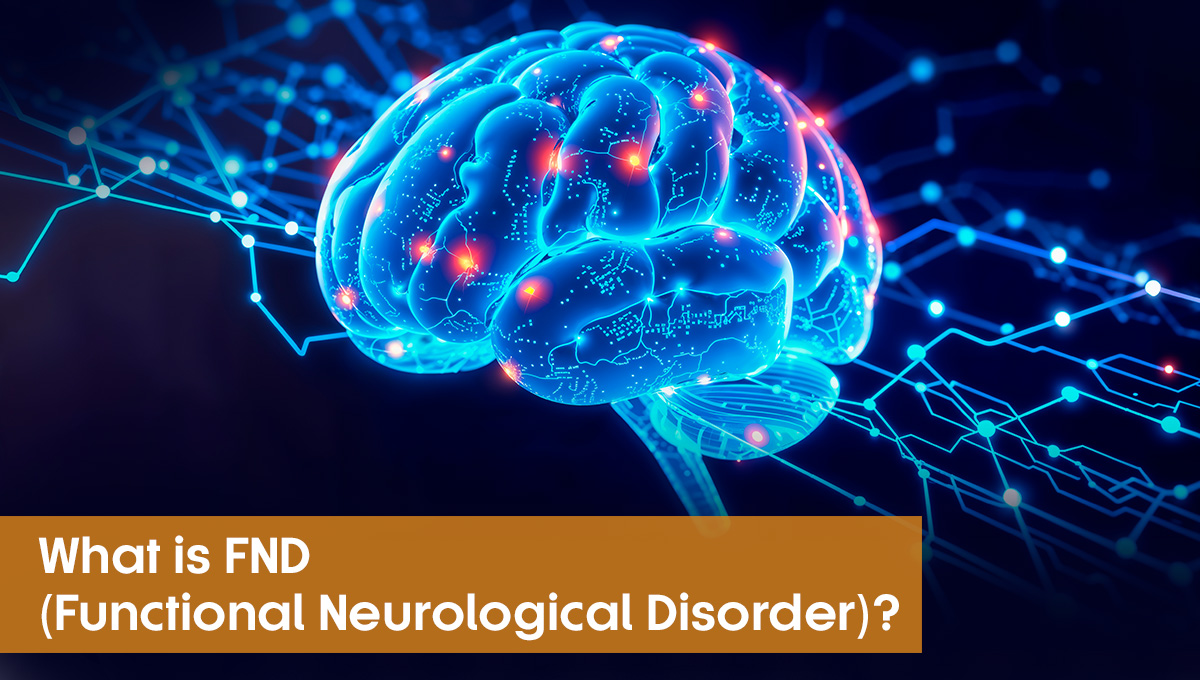
Functional Neurological Disorder (FND)
A Clinical Perspective on Functional Neurological Disorder (FND):
Functional Neurological Disorder (FND) presents a clinical paradox: patients experience clear, sometimes disabling neurological symptoms, but traditional tests such as MRIs and CT scans show no structural abnormalities. At Sukino Rehabilitation, we recognize FND as a legitimate, treatable condition that lies at the intersection of neurology, psychiatry, and rehabilitation.
What is Functional Neurological Disorder (FND)?
FND occurs when the brain’s normal processes of planning and executing movement, sensation, and speech are disrupted. Unlike neurological disorders like stroke or multiple sclerosis, FND is not caused by physical damage to the brain, but by a breakdown in communication between different parts of the nervous system.
Key Symptoms of FND:
- Limb weakness or paralysis
- Non-epileptic seizures
- Tremors or involuntary movements
- Loss of coordination or balance
- Speech and swallowing difficulties
These symptoms are real and can severely impact daily functioning, but they are often misunderstood or misdiagnosed, leading to delayed care.
Understanding the Neurobiology:
FND is believed to result from altered brain functioning in areas such as the prefrontal cortex, limbic system, and motor regions. Neuroimaging studies show abnormal patterns of brain activation, even in the absence of damage. In clinical terms, the patient’s software is malfunctioning, though the hardware remains intact.
Diagnosis: A Positive Process:
At Sukino, we emphasize a positive diagnosis, meaning that we don’t simply diagnose FND by ruling out other disorders. Instead, we identify it through specific signs:
- Hoover’s sign: a test used to detect functional limb weakness
- Non-epileptic events: seizures with no abnormal electrical activity in the brain
- Inconsistency in symptoms: variability based on distraction or emotional stress
Our neurologists work closely with the rehabilitation team to ensure that the diagnosis is accurate and clearly communicated to the patient, which is key to improving outcomes.
Treatment: Multidisciplinary and Patient-Centered:
Effective FND rehabilitation requires an integrated approach that addresses both neurological and psychological aspects. At Sukino, our Continuum Care model includes:
- Neuro-physiotherapy: Focused exercises to retrain the brain-body connection
- Clinical psychology: CBT and trauma-informed therapies to address underlying stressors
- Speech and swallow therapy: For communication and eating-related symptoms
- Occupational therapy: To restore daily living skills and confidence
- Caregiver training and support
The goal is not just symptom relief, but long-term functional recovery.
Case Example:
A middle-aged man presented with sudden limb weakness and was initially suspected of having a stroke. After detailed evaluation and a neurologist’s consult, he was diagnosed with FND. He entered Sukino’s inpatient neuro-rehabilitation program, where his care plan combined movement reconditioning, CBT, and family therapy. In six weeks, he progressed from wheelchair dependence to walking independently and returned to work within three months.
Why Early Intervention Matters:
Clinical evidence shows that early diagnosis and multidisciplinary rehabilitation significantly improve recovery rates. At Sukino, we prioritize early referrals from neurologists and physicians to minimize the cycle of repeated investigations and frustration.
Frequently Asked Questions about Functional Neurological Disorder (FND):
Q: Can FND be cured?
A: There is no one-size-fits-all cure, but many patients achieve significant recovery with the right interventions. Recovery is often gradual but meaningful.
Q: Are the symptoms real?
A: Absolutely. Though there is no structural brain damage, the symptoms are the result of real disruptions in brain function.
Q: Is it the same as malingering?
A: No. Malingering implies intentional faking, which is not the case in FND. These are involuntary and distressing symptoms.
Q: Why is a rehab facility like Sukino the right choice?
A: Because FND requires coordinated care across disciplines. Our Continuum Care model ensures that patients receive consistent, individualized support from a team trained to understand FND.
FND challenges traditional diagnostic frameworks, but with informed, structured, and compassionate care, recovery is possible. At Sukino, we bring together clinical expertise and rehabilitative compassion to help patients regain control, confidence, and function.
If you know someone showing unexplained neurological symptoms, encourage a multidisciplinary evaluation. At Sukino Rehabilitation Centres across Bangalore, Kochi and Coimbatore, we don’t just treat symptoms—we restore lives.
Related
BY: Sukino
COMMENTS: No Comments
